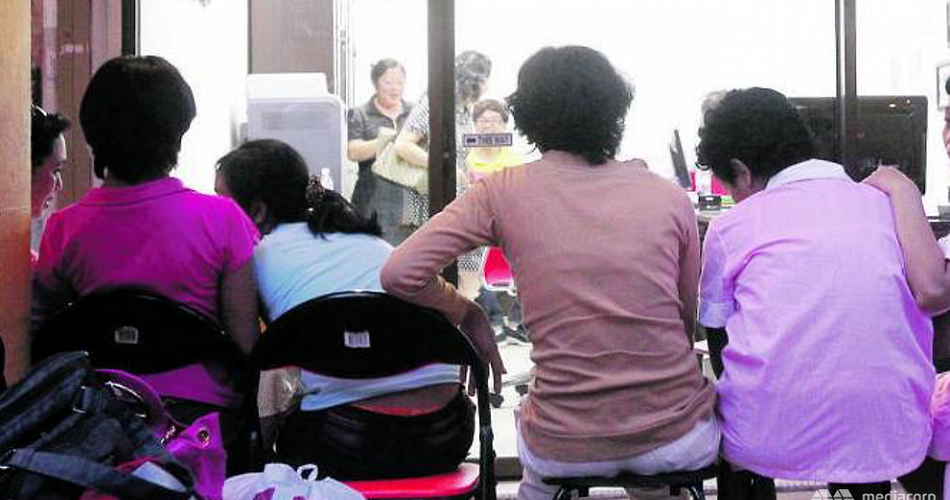Free dispute resolution services, more info on maids’ employment history to better support employers in hiring domestic workers.
Published on 6th October, 2019

SINGAPORE: A free dispute resolution service will be rolled out by the end of October to help resolve issues that employers have with their maids or maid agencies, announced the Ministry of Manpower (MOM) on Sunday (Oct 6).
The initiative is part of a series of new measures which will be progressively rolled out over the next two years aimed at helping employers find maids who are a good match for their needs.
This follows consultations with 44 stakeholders, including employers, employment agencies and non-government organisations in October 2018, said MOM.
The dispute resolution service will be introduced by the Centre for Domestic Employees (CDE), working together with the Lutheran Community Care Services (LCCS).
Employers could also approach the Foreign Domestic Association for Social Support and Training (FAST), which has piloted free mediation services since 2016, for help to “resolve issues instead of ending the working relationship”, said MOM.
About two in three maids do not complete two years of their contract, and the ministry said more can be done to support employers in the hiring of maids, as “early termination of contracts is costly and disruptive to both parties”.
MORE INFO ON MAIDS TO BE MADE AVAILABLE
As part of the measures, employers and employment agencies will also have access to more information about the prospective maid’s work experience from October 2020.
These will include their key job scope, residence type and household size of the maids’ former employment, said MOM. The reasons for leaving their last employment will also be available.
For Mdm Marisa Low, the extra information is welcomed. The 42-year-old has had a maid to help in the care of her three children, now aged four to nine, since her first child was born.
When her first maid had to return home to get married in 2016 after six years of working for the family, she turned to the same employment agency to look for a replacement.
Mdm Low said although the replacement maid met her criteria on paper, her expectations were not met, and Mdm Low sent her home after just three days.
“Sometimes the information on paper can be a bit misleading,” she added.
“For helpers that have worked in Indonesia and the Middle East, it might say on paper that they’ve worked with a family that has young children. However, many families have more than one maid, and their previous job scope could be completely different, but it’s not clear until you meet them and speak to them.”
According to MOM, there were about 250 employers who changed five or more maids within 12 months in 2018.
From October 2020, employment agencies will be able to access information on the maids’ that were previously hired by these employers, including employment period, nationality and age.
The Ministry believes that with this, employment agencies will be “better able to advise employers who may need additional help” while choosing suitable maids.
Ms K Jayaprema, president of the Association of Employment Agencies (AEAS) said while an official record of this information is useful, most agencies already have these details from their interview processes with prospective maids.
“This measure complements what employment agencies already have to do,” she said.
“Especially for employees that change domestic workers frequently, if the agency can see the hiring pattern and identify where they have gone wrong,” added Ms Jayaprema.
“The agency can then advise the employer that maybe they should consider alternative nationalities or age groups, or work harder at understanding what went wrong in the previous employment.”
AEAS represents about 300 employment agencies, which in turn deploy more than 75 per cent of domestic workers in Singapore.
ENSURING MAID AGENCIES TAKE GREATER OWNERSHIP
To “ensure that employment agencies take greater ownership” in finding better matches for employers, said MOM, all employment agencies will be required to provide an option for a refund of at least 50 per cent of the service fee charged to employers when a maid’s contract ends prematurely, within the first six months, from October 2021.
The service fee typically includes all fees collected by the employment agency from the employer, excluding third-party costs like insurance, the maid placement loan, and ad-hoc service requests like house visits.
Ms Jayaprema said AEAS will be working with MOM to ensure clarity on the perimeters for the refund of the service fee, and added that she foresees that agencies could react by increasing their service fees to factor in losses.
Describing skillset matching as “the least of the problems”, Ms Jayaprema said: “Instead, the expectations of the employer and domestic workers of each other must be managed better.”
She expressed concerns about shifting more responsibility on the employment agencies to find maids that are better match for employees.
“There is only so much better job matching can do, because sometimes they are falling out with each other not because the domestic worker does not have the skillset. It is because the employer and employee personalities cannot match. They cannot get along,” she said.
“We hope that these policies don’t make employers lose the motivation to work harder at this relationship. We must still remind employers and domestic workers that ultimately, it is still their responsibility to make the relationship work.”
From October 2021, employment agencies will also be informed when maids they have placed leave Singapore after completing their contracts, said MOM.
“These foreign domestic workers are likely to have adjusted well in Singapore and have had good working relationships with previous employers. As such, bringing them back would benefit other prospective employers.”
Source: CNA/nc
First published by Ng Jun Sen
Read more at https://www.channelnewsasia.com/news/singapore/maids-employment-domestic-workers-services-11974026